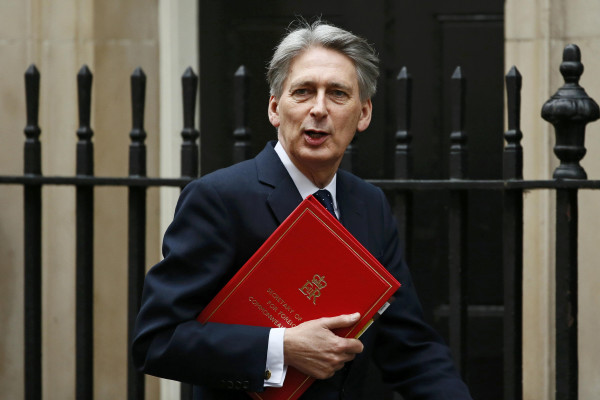

Chancellor Philip Hammond promised twice a year tax tinkering was a thing of the past as he unveiled his first Spring Statement today (13 March).
His speech kicked off with his pledge he was in a positively Tigger-ish mood but did Mr Hammond actually manage to prove like Winnie the Pooh’s stripy friend he is a wonderful thing?
Here are the five things you need to know about the Spring Statement.
1) Fiscal forecasts
The economy has grown for five consecutive years, and exceeded expectations in 2017, according to Mr Hammond.
The Office for Budget Responsibility (OBR) increased their forecast for growth this year to 1.5 per cent, with 1.3 per cent predicted for 2019 and 2020.
The OBR expected inflation to fall over the next 12 months, and wages to increase faster than prices over the next five years.
Mr Hammond claimed the UK's public finances have reached a turning point, with borrowing down and the first sustained fall in debt for 17 years
Borrowing has fallen by three-quarters since 2010. In 2009 to 2010 the UK borrowed £1 in every £4 that was spent. The OBR expect that we will borrow £1 in every £18 this year.
Debt will start falling as a share of GDP next year.
Even so, the UK's debt remains equal to around £65,000 per household.
According to Mr Hammond this makes the economy vulnerable to future shocks and also imposes a significant burden on future generations.
2) More housing promises
An investment programme of at least £44bn over the next five years was announced at Autumn Budget 2017, putting the UK on track to raise the supply of homes to 300,000 a year on average by the mid-2020s.
The Spring Statement confirmed the government is working with 44 areas on their bids into the £4.1bn Housing Infrastructure Fund to help build the homes that the country needs and the Housing Growth Partnership, which provides financial support for small housebuilders, will be more than doubled to £220m.
London will receive £1.67bn to start building a further 27,000 affordable homes by the end of 2021 to 2022, the chancellor announced.
To help people getting onto the housing ladder, stamp duty for first-time buyers of homes under £300,000 was abolished at Autumn Budget 2017, with buyers of properties up to £500,000 benefitting from the change.
According to Mr Hammond an estimated 60,000 first-time buyers have benefitted so far.
3) Cost of living
In April 2018 the National Living Wage will rise to £7.83, worth £600 extra a year for a full-time worker.
National minimum wage rates for under 25s and apprentices will also increase – the largest increase in youth rates in 10 years.
More than two million people are expected to benefit from April’s increases.
The tax-free personal allowance – the amount you earn before you start paying income tax – will rise to £11,850 from April 2018.
This means that in 2018 to 2019, a typical taxpayer will pay £1,075 less income tax than in 2010 to 2011.
4) Business rates revaluation brought forward
At Autumn Budget 2017 it was announced that business rates revaluations will take place every three years, rather than every five years, following the next revaluation.
Spring Statement 2018 announces the next revaluation, currently due in 2022, will be brought forward to 2021.
This will mean businesses can benefit from the change to three-year revaluations earlier, with the first taking place in 2024.
5) Changes to tax system
The government revealed plans to change the tax system to give a “fair result for digital businesses.”
The government is seeking views on what more it can do to:
• support people and businesses who use digital payments.
• ensure that those who need to are able to pay with cash.
• prevent the use of cash to evade tax and launder money,
The government is also seeking views on extending the current tax relief to support self-employed people and employees when they fund their own training.
emma.hughes@ft.com



